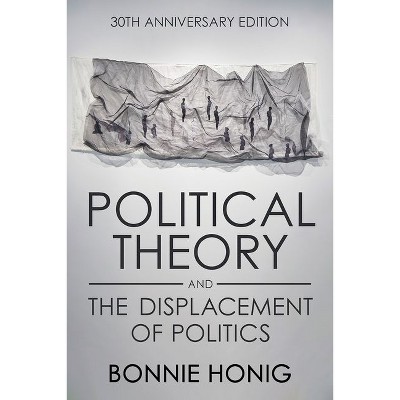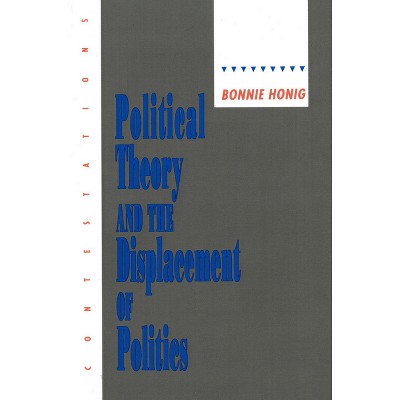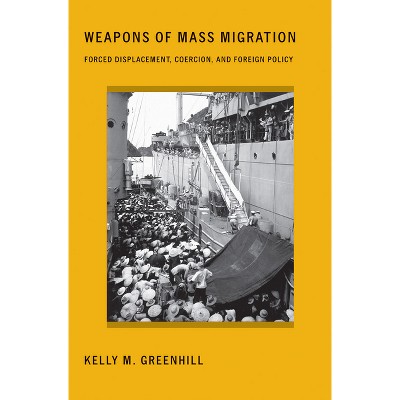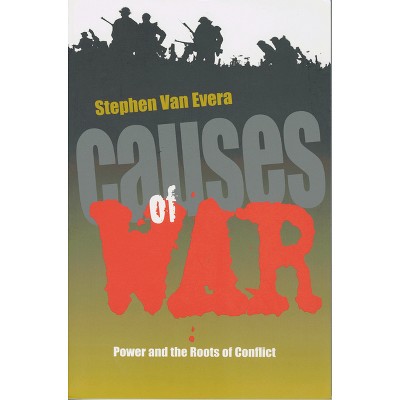Sponsored

Living Ethically, Acting Politically - (Contestations) by Melissa A Orlie (Paperback)
In Stock
Sponsored
About this item
Highlights
- How can we conceive of freedom and responsibility when our power is limited and we are subject to the forces of society?
- About the Author: Melissa A. Orlie is Associate Professor of Political Science, Criticism and Interpretive Theory, and Women's Studies at the University of Illinois, Urbana-Champaign.
- 248 Pages
- Political Science, History & Theory
- Series Name: Contestations
Description
About the Book
Political scientist Melissa Orlie asks what it means to live freely and responsibly when advantages are distributed disproportionately according to race, gender, class, culture, and religion. Orlie reveals the daily ways people commonly exercise power, inflict harm, yet show themselves capable of actions that transform both themselves and the world. A thought-provoking study.Book Synopsis
How can we conceive of freedom and responsibility when our power is limited and we are subject to the forces of society? Melissa A. Odie asks what it means to live responsibly amid historical harm and wrongdoing, in the wake of slavery and genocide, or in the face of severe resource asymmetries. By connecting resistance to evil with reflections on the nature of power and political action, Odie reveals the daily ways people commonly exercise power, inflict harm, and show themselves capable of actions that transform both selves and the world. Viewed in this context, truly ethical political action may appear miraculous but could happen at any time.
Odie asks what it means to live freely when advantages are distributed disproportionately according to race, gender, class, culture, and religion. What do freedom and responsibility entail when, for example, creating a home for oneself implies social and economic commitments that render others homeless? To address these questions, Orlie links diverse intellectual concerns and constituencies in the social sciences and humanities, offering original interpretations of Hannah Arendt, Michel Foucault, and Thomas Hobbes. She compares their thinking to that of the seventeenth-century Quakers who found political possibilities in the powers they called "spirit" in the world and in themselves.
Review Quotes
Orlie's analysis of responsibility and agency is subtle and complex... A challenging and instructive account of the modern crisis of citizenship.
-- "Signs"The organization of the book is elegant and coherent, and the arguments are well crafted.
-- "Perspectives on Political Science"About the Author
Melissa A. Orlie is Associate Professor of Political Science, Criticism and Interpretive Theory, and Women's Studies at the University of Illinois, Urbana-Champaign.











